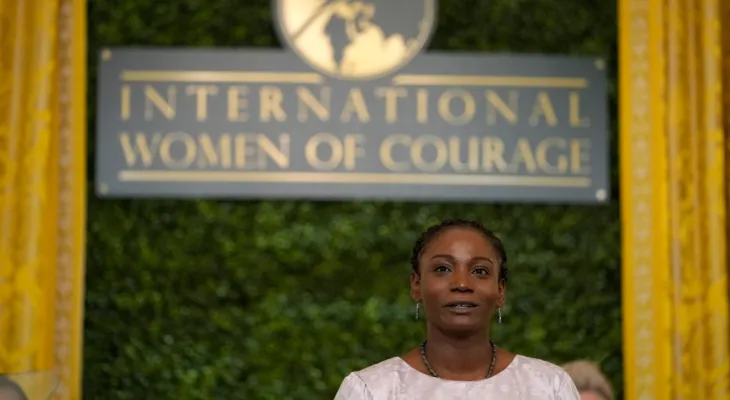Search here
Newspaper
Search here

Arab Canada News
News

Published: March 18, 2024
Lawmakers in Gambia are voting today, Monday, on legislation seeking to repeal the ban imposed in 2015 on female genital mutilation, which would make the West African country the first in the world to take such a step back.
This procedure, also known as female genital mutilation, involves the partial or complete removal of the external genitalia, often performed by traditional community practitioners using tools such as razors or sometimes by healthcare workers.
It is often carried out on young girls, mistakenly believed to control a woman's sexual life, and can cause severe bleeding and death. This practice remains widespread in parts of Africa.
Jaha Dukureh, founder of Safe Hands for Girls, a local organization aiming to end this practice, told the Associated Press that she is concerned about the possibility of other laws protecting women's rights being repealed afterward. Dukureh underwent this procedure herself and witnessed her sister bleed to death.
If they succeed in this repeal, we know they might come after the child marriage law and even the domestic violence law. She said: "It is not about religion but about controlling women and their bodies."
The bill is supported by religious conservatives in the predominantly Muslim country with a population of less than 3 million. Its text states that it "seeks to preserve religious purity and protect customs and cultural values." The highest Islamic authority in the country has described this practice as "one of the virtues of Islam."
Gambia's former leader, Yahya Jammeh, banned this practice in 2015 in a surprise to activists and without public explanation. United Nations estimates indicate that more than half of women and girls aged 15 to 49 in Gambia have undergone this procedure.
A crowd of men and women gathered outside the Gambian parliament on Monday, some carrying protest signs against the bill. They were stopped by riot police.
Fatu Gajny Senghor, head of the local women's rights and leadership center, told the Associated Press that the bill "aims to reduce women's rights and reverse the slight progress made in recent years."
Anna Njei, head of the local bar association, said this practice "has been proven to cause harm through medical evidence."
UNICEF said earlier this month that about 30 million women worldwide have undergone this procedure in the past eight years, most in Africa but some in Asia and the Middle East.
More than 80 countries have laws banning this procedure or allowing prosecution, according to a World Bank study cited earlier this year by the United Nations Population Fund's Questions and Answers. These include South Africa, Iran, India, and Ethiopia.
The UN Population Fund report states: "There is no religious text that encourages or permits female genital mutilation," adding that there is no benefit to this procedure.
Girls undergo this procedure at ages ranging from childhood to adolescence. In the long term, it can lead to urinary tract infections, menstrual problems, pain, decreased sexual satisfaction, childbirth complications, as well as depression, low self-esteem, and post-traumatic stress disorder.
Comments